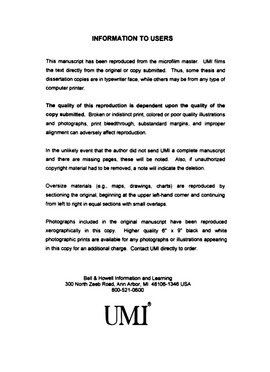| dc.contributor.advisor | Badhwar, Neera K., | en_US |
| dc.contributor.author | Poorman Dougherty, Kathleen A. | en_US |
| dc.date.accessioned | 2013-08-16T12:31:00Z | |
| dc.date.available | 2013-08-16T12:31:00Z | |
| dc.date.issued | 2000 | en_US |
| dc.identifier.uri | https://hdl.handle.net/11244/6009 | |
| dc.description.abstract | The claim that virtue requires self-knowledge may seem banal, but it has been challenged by recent claims that certain virtues, such as modesty, require ignorance of self and that self-deceived persons are both happier and nicer. My argument is grounded in a broadly Aristotelian conception of virtue, where full moral virtue includes both the virtues of character, such as temperance, generosity, and courage, and the intellectual virtue of practical wisdom. I argue that self-knowledge is necessary for practical wisdom and practical wisdom is necessary for virtue; hence, self-knowledge is necessary for virtue. However, self-knowledge is not sufficient for virtue, as a person could lack other capacities or insights that would enable her to act virtuously. She may, for example, fully understand her own character, yet be too weak to do the right thing, or she could know that she is a con artist and feel proud of this fact. | en_US |
| dc.description.abstract | Self-knowledge, I argue, is a component of virtue for which we may be held partly responsible. Self-knowledge is not the sort of thing we acquire in a vacuum, for inter-personal relationships may contribute greatly to our self-knowledge, but neither is it possible for someone else to give us self-knowledge. It is one aspect of a virtuous character that we ourselves must be responsible for: no matter how much others try to help us along, self-knowledge can be acquired only through our own good faith efforts. | en_US |
| dc.description.abstract | My dissertation addresses the relationship between self-knowledge and moral virtue. I argue (1) that self-knowledge is necessary for virtue, and (2) that, within limits, we are responsible for acquiring or failing to acquire self-knowledge. My arguments serve, in part, as a response to the commonly held view that goodness is often natural or unreflective. Thus my dissertation addresses important questions regarding both the nature of virtue and the extent to which we are responsible for our characters. | en_US |
| dc.format.extent | iv, 171 leaves ; | en_US |
| dc.subject | Philosophy. | en_US |
| dc.subject | Cardinal virtues. | en_US |
| dc.subject | Self-knowledge, Theory of. | en_US |
| dc.title | Self-knowledge and moral virtue. | en_US |
| dc.type | Thesis | en_US |
| dc.thesis.degree | Ph.D. | en_US |
| dc.thesis.degreeDiscipline | Department of Philosophy | en_US |
| dc.note | Source: Dissertation Abstracts International, Volume: 61-06, Section: A, page: 2328. | en_US |
| dc.note | Adviser: Neera K. Badhwar. | en_US |
| ou.identifier | (UMI)AAI9977951 | en_US |
| ou.group | College of Arts and Sciences::Department of Philosophy | |
